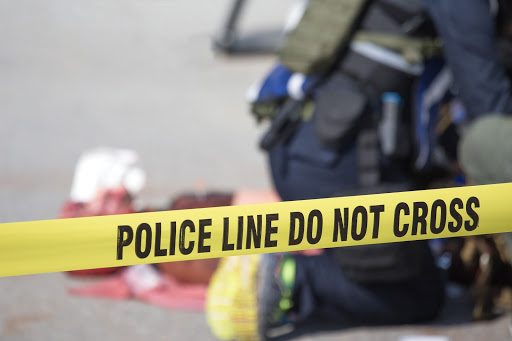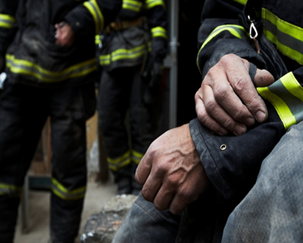Author: IAFF Staff
August 8, 2019
After a shooting in El Paso, Texas, claimed the lives of 22 innocent people, the nightmare was repeated less than 12 hours later in Dayton, Ohio, where another shooting claimed nine additional lives. As the nation tries to heal, many are struggling with a range of emotions, reactions and questions that can’t be answered.
While IAFF members undergo routine tactical response training to prepare for such events, nothing can emotionally prepare members for responding to a mass shooting that claims dozens of innocent lives.
To support IAFF brothers and sisters in the aftermath of an active shooter event or other disaster,
peer support is a critical response component. A team of more than 20 IAFF trained peers, accompanied by two mental health clinicians, are spending the next week with El Paso, Texas Local 51. Simultaneously, an IAFF peer team is deployed to support Dayton, Ohio Local 136 in collaboration with the Ohio Association of Professional Fire Fighters Peer Support Team.

What Is Peer Support?
Peer support enables fire fighters to receive confidential support from another IAFF member who is trained to help. Peers are often paired based on a mutual understanding or experience that bonds them. For fire fighters experiencing personal, emotional or work-related problems, peer support can be a vital link to additional resources and professional help when needed. Peer Support builds trust, community and acceptance between IAFF members
What Is the Role of Peer Support After a Multiple-Fatality Shooting?
After a mass shooting, a trained peer team visits impacted fire stations to provide truthful, trustworthy, short-term support to fire fighters and paramedics and their family members. In many cases, trained peers also visit local union halls or host family nights to bring impacted members together and provide support and resource referrals as needed.
When manmade or natural disaster occurs, there is a sudden loss of safety, order and personal control, as overwhelming demands to an individual or community begin to build. These factors play a clear role in the onset of post-traumatic stress disorder (
PTSD) and other mental health conditions that can surface following a traumatic incident.
Fortunately, peer support programs have been demonstrated to be an effective method for providing support to occupational groups, including fire fighters. Following a disaster, the goal of the trained peer to is to facilitate the normal recovery process through the restoration of five key components:
- Physical and emotional safety
- Sense of calming
- Sense of efficacy/personal control
- Connectedness to others
- Hope for the future

After a Multiple-Fatality Shooting, What Reactions Will Fire Fighters Experience?
Many fire fighters will experience at least some symptoms of
post-traumatic stress. Symptoms typically decrease within a few days or weeks of a stressful or traumatic incident and do not significantly impair daily functioning. Post-traumatic stress is
different from post-traumatic stress disorder and usually requires no professional treatment. Symptoms of post-traumatic stress include:
- Intrusive thoughts, nightmares, flashbacks of the event
- Avoidance of people, places, things associated with the traumatic event
- Negative changes in mood, thoughts and memory (e.g., self-blame caused by distorted beliefs surrounding the event or the rescue)
- Symptoms related to irritability and hyperarousal, such as poor concentration or insomnia
Do Fire Fighters Who Respond to a Multiple-Fatality Shooting Have PTSD?
The vast majority of fire fighters who respond to multiple facility shooting will not develop
PTSD. However, some will. The stresses faced by fire service members throughout the course of their careers — including but not limited to multiple fatality events, violence, injury to children and the inherent dangers of firefighting and emergency rescue — have a cumulative impact on mental health and well-being. This impact is not limited to PTSD, but can also lead to other
mental health conditions, including addiction, major
depression, panic disorder, generalized
anxiety and
complicated grief.
In the fire service, peers play a vital role in supporting mental and physical health for individuals in a department. However, for IAFF members who are struggling at work or at home due to substance use or mental health disorders, professional treatment may be needed. In some cases, once-weekly outpatient care is sufficient, while other cases warrant a more intensive treatment approach.
The IAFF Center of Excellence for Behavioral Health and Treatment and Recovery is a comprehensive residential treatment center designed exclusively for IAFF members struggling with PTSD, addiction and other co-occurring mental health problems. Call today for a free, non-obligation and confidential screening for yourself, your crew member or a loved one.

